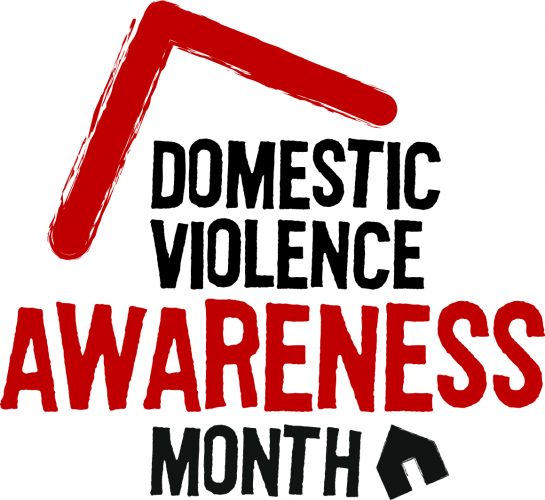Local experts reflect on efforts to prevent domestic violence, prosecute perpetrators

Randolph
 Editor’s note: October is Domestic Violence Awareness Month.
Editor’s note: October is Domestic Violence Awareness Month.
The conversations and the dynamics surrounding domestic violence have changed over the years, but plenty of work remains in the fight to destigmatize reporting, prosecute abusers and provide victims with the services they need to rebuild their lives.
“I’ve learned that it’s something that deeply affects victims and also affects their family members, their children, (and) their employers because they may not be able to go to work when a domestic violence incident occurs,” First Assistant Marshall County Attorney Sarah Tupper said. “Domestic abusers put a lot of pressure on the victims to not report the crime (and) to not cooperate with prosecution… It takes a community response to respond to domestic violence and lessen the incidences.”
As a prosecutor with nine years of service to Marshall County and 19 years of experience working domestic violence cases, Tupper has seen countless cases come across her desk over the years, and she knows that victim testimony often isn’t enough to seal a conviction. The attorney’s office, along with law enforcement agencies like the Marshalltown Police Department, have shifted toward a more evidence-based approach that relies on photos of injuries, recordings of 911 calls and medical records.
“It’s a crime that often happens behind closed doors, and there’s not as much evidence of domestic abuse crimes as there might be of a robbery or a murder or something like that,” Tupper said. “It comes down to trying to explain to a jury why they should believe what this victim is saying is what actually occurred.”

Tupper
Lt. Tricia Thein of the Marshalltown Police Department shared a similar sentiment, adding that officers regularly take follow-up photos to see how injuries develop over extended periods of time.
“When it’s just a red mark now, tomorrow it could be that black eye. It could be that bruise on the thigh. It could be he grabbed my arm and dragged me this way,” Thein said. “We will put our stock in the physical evidence because it has no bias. It just is what it is.”
Annie Randolph works as the development coordinator at Assault Care Center Extending Shelter and Support (ACCESS) in Marshalltown, which offers services including emergency shelter, hospital support and court advocacy for victims of crimes including but not limited to domestic violence. The number one guiding principle, as Randolph explained, is that ACCESS is a safe and non-judgmental place for victims and their children.
“No matter what, we’re always ready to provide services to people,” Randolph said.
Both Randolph and Tupper said they feel like instances of domestic violence have gone up since the COVID-19 pandemic for a number of reasons, financial stresses and families being more likely to stay in their homes chief among them. Randolph explained that ACCESS has received several calls about incidents that occurred during the last year and a half but are just now being reported. Randolph also shared several warning signs that could indicate a possible domestic violence situation: a “clingy” partner in a relationship, stalking, isolation or attempts to control finances.

Thein
ACCESS is currently sponsoring a “Pennies for Change” campaign in conjunction with Domestic Violence Awareness Month with hopes of raising at least $10,000, and community groups that raise over $1,000 are eligible for a grand prize drawing.
Thein is on the front lines and has seen the ugly nature of domestic violence through her investigations, and even though it’s estimated that only about 25 percent of all incidents are actually reported to authorities, she is encouraged that the laws pertaining to how these situations are handled have changed substantially.
“Things that used to be a family problem are not considered that anymore, and I’m so thankful for that,” Thein said.
She also commended victims who come forward and report the crimes, noting that they can “change generations” because they have the power to reverse the pre-existing dynamics and cycles in their families.
“They almost become teachers within those families,” Thein said. “I always try to let them see the power to change their family story. They may be friends with somebody who’s suffering in silence as well, and it can be quite an inspiration.”
Thein went on to point to a statistic that shows children who are raised in homes where domestic violence is prevalent are four times more likely to engage in criminal activity themselves. She also encouraged community members to abide by the mantra of “See something, say something.”
“I would love to see a world where domestic violence no longer exists as my grandchildren are starting their families,” Thein said. “So do it for the children, if nothing else.”
If you are a victim of domestic violence and need to reach ACCESS, the local number is 515-292-0500.
The 24-hour domestic violence crisis hotline is 1-800-983-4641.
——
Contact Robert Maharry at 641-753-6611 ext. 255 or rmaharry@timesrepublican.com
- Randolph
- Tupper
- Thein







